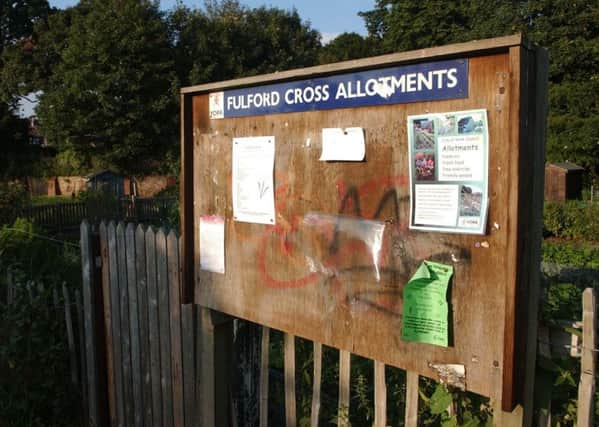The food scare over toxic soil: The week that was August 15 to 21, 2006


The Health Protection Agency said that in severe cases arsenic poisoning could cause multiple organ failure and had possible links to cancer. Lead ingestion could cause severe abdominal pain and diarrhoea and also affect the central nervous system, especially in children.
It was thought the contamination could have happened because the 42 council-owned allotments were on land previously used as a waste tip.Samples of soil had been taken from the site as part of standard planning procedures involved in suggested improvements to the adjacent support centre.
Advertisement
Hide AdAdvertisement
Hide AdFor the second time in three years West Yorkshire Metropolitan Ambulance Service was found to have misreported 999 call response times. Despite submission of inaccurate data, it was still the worst performing ambulance trust in England in 2005/6 under its previous service structure.
The government pledged to change control room systems after six out of 31 trusts nationally misreported their times. In an unprecedented step, the Department of Health ordered a ‘lockdown’ in computer software measuring response times, making it impossible for staff to make changes.
Hemsworth MP John Trickett said he did not blame frontline staff for the problems. He added: “The problem has been with senior management, and it’s essential that new management proves itself more worthy than previous regimes.”
Sugar beet growers in Yorkshire warned of huge job losses and a serious blow to the rural economy, after a deal was hammered out over the closure of the York sugar factory.
Advertisement
Hide AdAdvertisement
Hide AdThey also warned that the agreement, reached after lengthy negotiations between the National Farmers’ Union and British Sugar, would have a devastating effect on the viability of beet growing in the county.
The deal included a new contract for growers from 2007 and compensation for those hit by closures at York and Allscott in Shropshire. Compensation was set at £8 a tonne for Yorkshire growers who gave up growing sugar beet after their current crop.
In the week when A-level results were expected and new undergraduates were about to pay university tuition fees of £3,000 for the first time, it was revealed that the number of graduates who had failed to find work after leaving university had risen in the previous year to six per cent. At 11 per cent, those with computer science degrees had the highest unemployment rate. The Higher Education Statistics Agency figures also showed that around one in three university leavers was working in a non-graduate job.
Hull residents were put on high alert after snake lover Paul Kemp reported that his 7ft Colombian boa constrictor Ellie was missing – having possibly escaped down the toilet into the city’s sewers. Locals were warned not to leave babies alone in prams and to lock up small pets until the snake was found.
Advertisement
Hide AdAdvertisement
Hide AdHarry Potter author JK Rowling was named the celebrity world’s ninth highest earner, raking in £77 a minute, according to US business magazine Forbes. Her tales of the boy wizard made her the only non-American on the list, which was topped by film director Steven Spielberg.